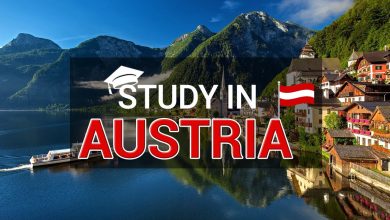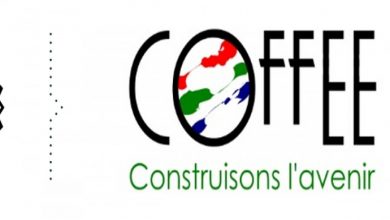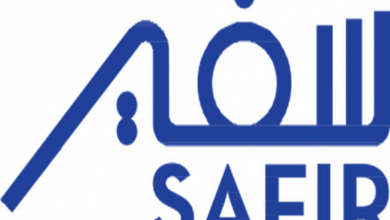Acronyme : InPROVE
Référence du projet: 610122 EPP 1 2019 1 FR EPPKA2 CBHE SP
N° de Convention de subvention : 2019 – 1970 / 001 – 001
Période d’agreement du projet : ( 2019-2022)
Site web du projet : https://inprove.edu.umontpellier.fr/

Project presentation
The InPROVE project only concerns Algeria. In this country, access to the labor market and, even more so, the possibilities of professional promotion are conditioned by the possession of a “diploma”. This requirement applies to all levels. Thus, for example, in the field of higher education, training can only be provided by staff holding a magister (former diploma existing before the transition to the LMD system) or a doctorate. Undoubtedly more representative, in any socio-economic sector, the holder of a certificate of professional aptitude (CAP or equivalent), or even a diploma of higher technician, will never be able to apply for a management position. , either middle manager or senior manager. While being a recognised and accepted means of access to employment, the diploma thus exacerbated then becomes at the same time a considerable obstacle to professional development. It is probably worth recalling here that this rigidity obviously has a significant impact on wages and their necessarily limited evolution over time. This impact is even stronger when it blocks the motivation and investment of staff in their work.
Context and motivation
Faced with the demographic challenge and the reduction of the “oil income”, Algeria is opening up to the market economy and is precisely seeking to promote a form of social mobility, particularly for the most active young people and more generally for all those who want to progress. In this context, and with a view to the relaxation impatiently awaited by civil society, the Algerian authorities are wondering about the advisability of setting up mechanisms allowing the Validation of Acquired Experience (VAE).
Objectives of the InPROVE Project
The InPROVE project aims to open up the possibility of certifying the validation of professional experience with a university degree. To achieve this goal, the project aims to:
- Develop a methodology for implementing the Validation of Acquired Experience (VAE) within Algerian universities.
To be applied, this methodology, developed jointly by the Algerian partners based on the experience of the European partners in their respective countries, implies the availability of efficient administrative structures, competent VAE advisors and referent teacher-researchers able to create university training in terms of skills and to assess professional skills
Beyond the development of the methodology itself, the specific objectives of InPROVE include the consideration of the above mentioned aspects, namely:

- The definition and implementation within partner universities of structures that can be used as support for the introduction of VAE within institutions. In order to ensure the validity and legitimacy of these structures, elements such as current regulations , the internal organisation and functioning of universities, or even the requirements of VAE will be fully integrated into the reflection and building phases.
- The training of VAE advisors enable them to provide VAE candidates with appropriate information and effective support, particularly when preparing applications ;
- The training of teachers in creating training courses in term of skills , including practical transcription phases on existing training.
- The training of teachers in skills assessment, again based on the examination of practical cases. These three sets of training will be provided by European partners who will be able to pass on their best practices to their Algerian colleagues.
The last objective of InPROVE is the validation of the programme as a whole through the analysis of a few test cases. From this analysis a final report submitted to the Algerian Ministry of Higher Education and Scientific Research.
Partenaires (Consortium) du Projet InPROVE
| N° du partenaire | Nom de l’organisation | Ville/pays | Personne de contact | |
|---|---|---|---|---|
| P1 | Université de Montpellier | Montpellier, France | Pr. Nadjib Kazi-Aoual | mohammed.kazi-aoual@umontpellier.fr |
| P2 | Université Abou Bekr Belkaid Tlemcen | Tlemcen, Algérie | Pr.Nassim Djabou | nassim_djabou@yahoo.fr |
| P3 | Université M’Hamed Bougara Boumerdès | Boumerdés , Algérie | Pr.Abdelaziz Taïri | atairi68@yahoo.fr |
| P4 | Université de Blida 1 | Blida, Algérie | Pr.Naïma Bouchenafa | naima_bouchenafa@yahoo.fr |
| P5 | Université Abdelhamid Ibn Badis Mostaganem | Mostaganem, Algérie | Pr Hadjira Benoudnine | Hadjira.benoudnine@univ-mosta.dz |
| P6 | Université Larbi Ben M’Hidi Oum El Bouaghi | Oum El Bouaghi, Algérie | Pr. Farida Hobar | hobarfarida@yahoo.fr |
| P7 | Université 8 mai 1945 Guelma | Guelma, Algérie | Rachid Hamdi | rachidahl@yahoo.com |
| P8 | Ministère de l’Enseignement Supérieur et de la Recherche Scientifique | Alger, Algérie | Khecheni Karim | k.khecheni@mesrs.dz |
| P9 | Université de Perpignan Via Domitia | Perpignan, France | Romain Petiot | romain.petiot@univ-perp.fr |
| P10 | PUniversidade do Porto | Porto, Portugal | Cintia Nogueira | crnogueira@reit.up.pt |
| P11 | Universitat de Barcelona | Barcelone, Espagne | Mariana Szefner | mszefner@ub.edu |
| P12 | Le FOREM | Belgique | Bérenger Dufromont | berenger.dufromont@forem.be |
| P13 | ARCHES | France | Jean-Paul Lefèvre | jean-paul.lefevre@arches-conseil-grenoble.eu |





